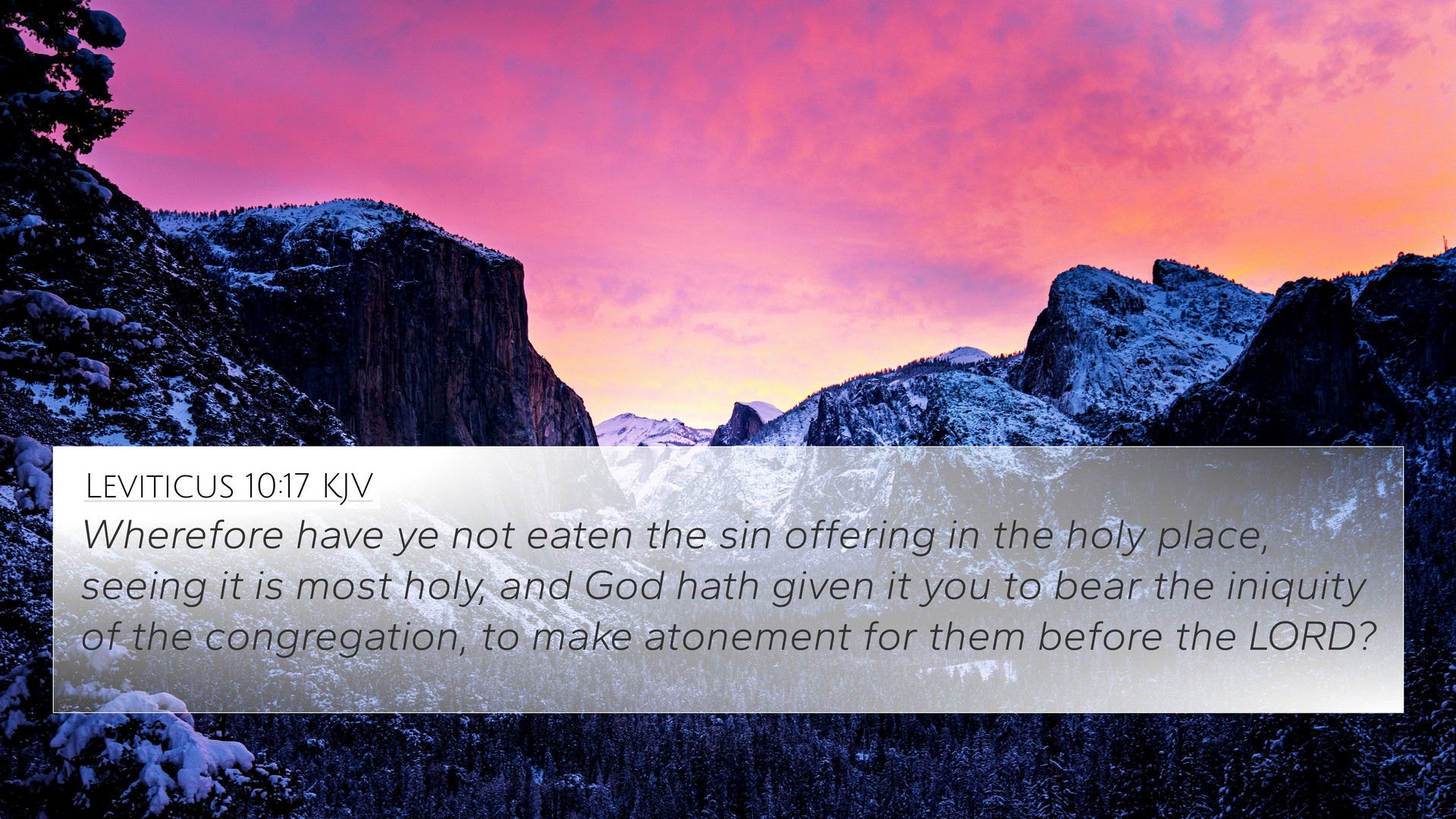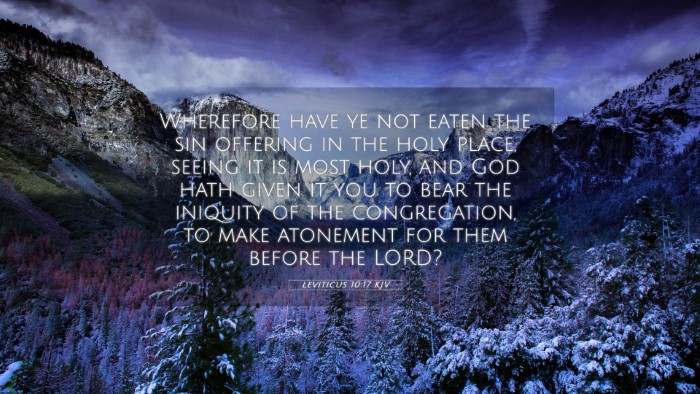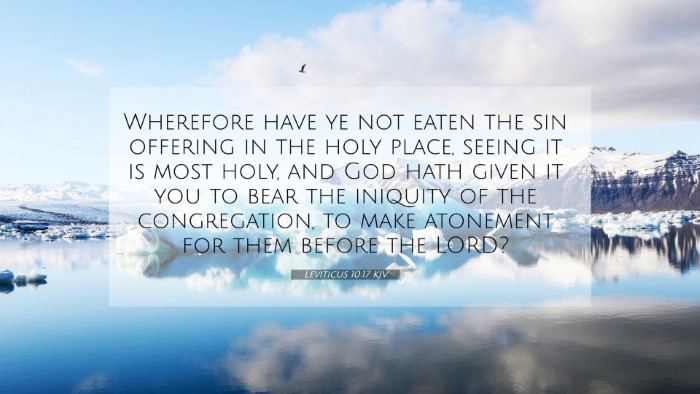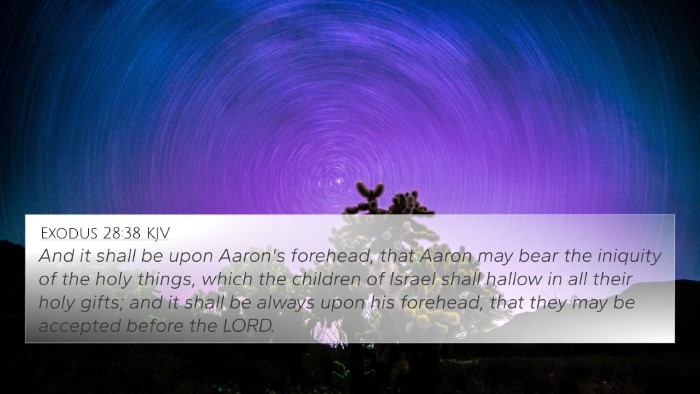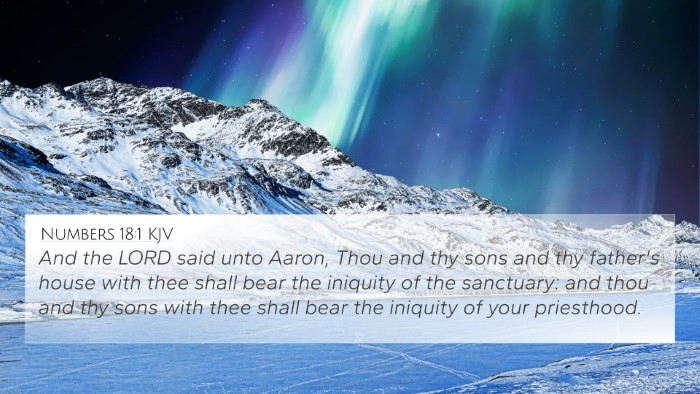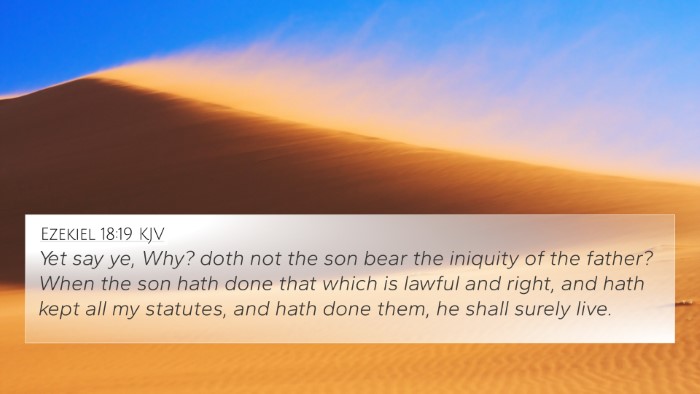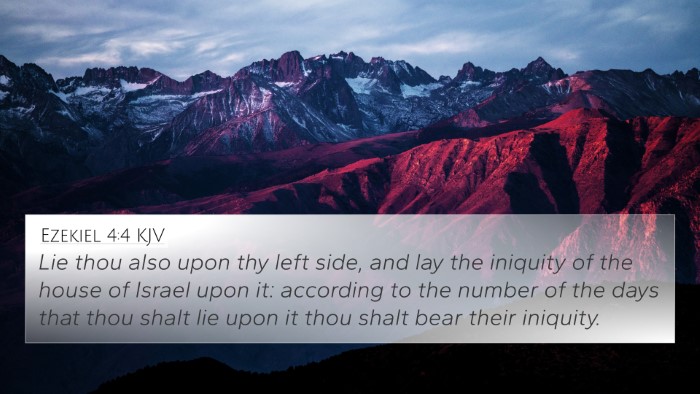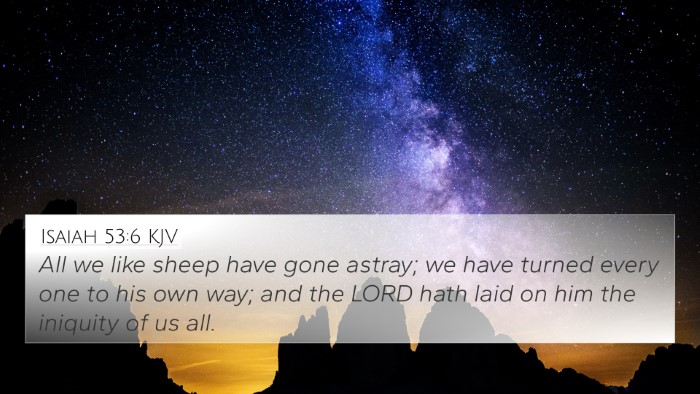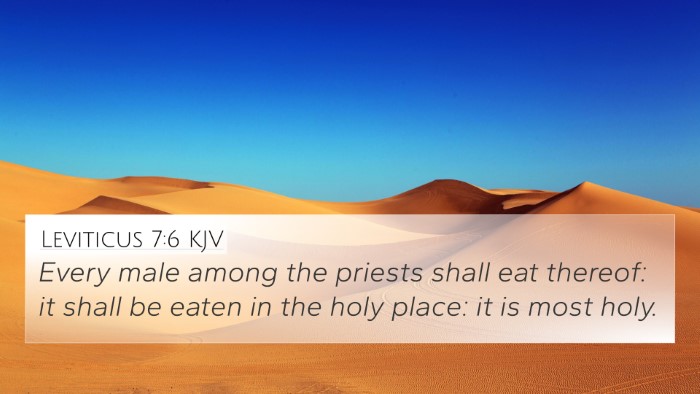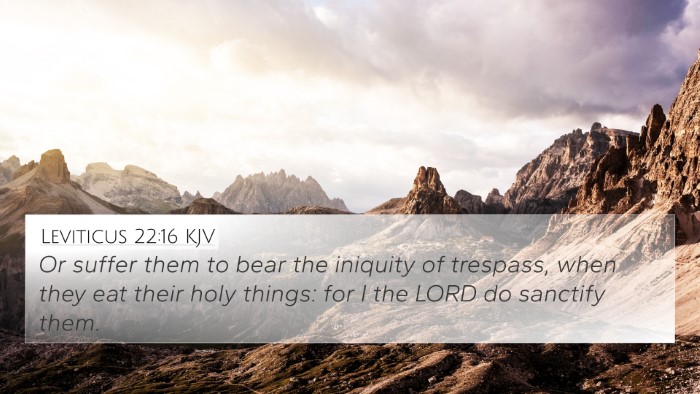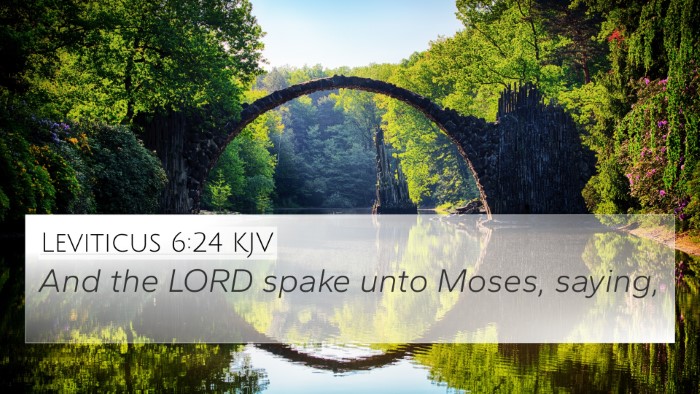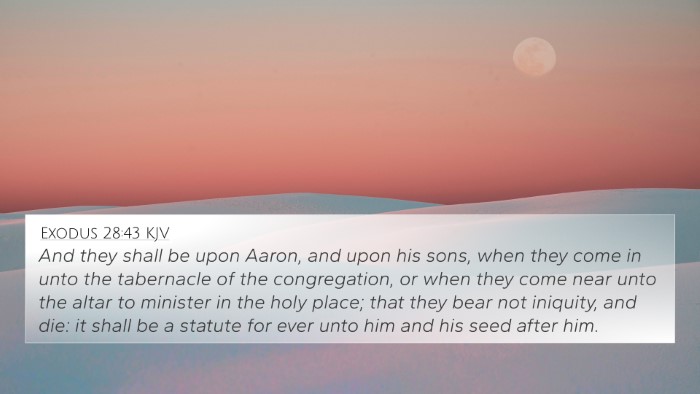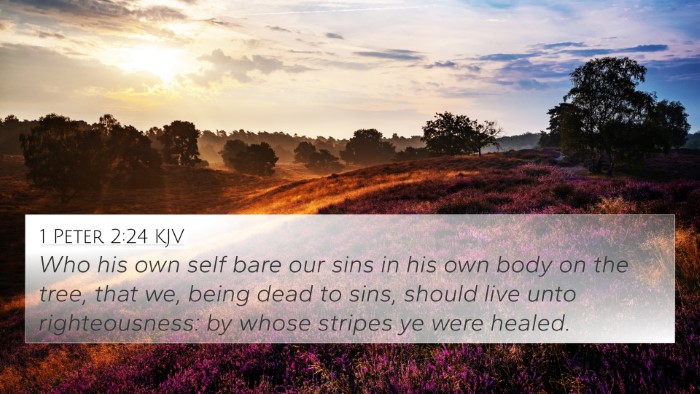Understanding Leviticus 10:17
Leviticus 10:17 states, "Why have you not eaten the sin offering in the holy place, since it is most holy and God has given it to you to bear the guilt of the congregation, to make atonement for them before the LORD?" This verse conveys significant teachings regarding the sacrificial system and the responsibilities of the priests.
Summary of Insights from Public Domain Commentaries
Matthew Henry's Commentary
Matthew Henry discusses the importance of obedience to God's commands, particularly concerning the rituals and responsibilities ordained for the priests. He notes that the sin offering was a crucial element in atonement, and failing to observe God’s instructions was a serious transgression. The verse highlights the necessity for the priests to properly consume the offerings in the holy place, reinforcing the sanctity and seriousness of their duties in serving God.
Albert Barnes' Notes on the Bible
Albert Barnes emphasizes the integral role that the sin offering played in the atonement process for the people of Israel. He points out that the priests were entrusted with carrying out these offerings in a manner that aligned with God’s directives. Barnes elaborates on the concept of holiness associated with the offerings and how consuming them within the holy place was a sign of reverence and obedience to God's laws.
Adam Clarke's Commentary
Adam Clarke offers a detailed analysis of the significance of the sin offering in Israel's religious practice. He mentions that the failure to eat the offering as commanded could lead to a misunderstanding of the purpose and efficacy of the sacrificial system. Clarke also hints at the broader implications of how disobedience to God's instructions could affect community atonement and implications for communal guilt.
Bible Verse Cross-References
Leviticus 10:17 connects with various other scriptures, offering deeper insights into its meaning through the lens of thematic Bible verse connections. Here are notable cross-references:
- Exodus 29:33: Discusses the sharing of the offerings, emphasizing the need for priests to partake in the sacrificial meals.
- Leviticus 6:26: Addresses the consumption of the sin offering, underscoring its holiness and necessity for atonement.
- Leviticus 16:22: Relates to the Day of Atonement procedures, crucial for understanding the role of the sin offering in atonement.
- Hebrews 10:1-4: Connects the Old Testament sacrificial system with New Testament theology focusing on Christ's ultimate sacrifice.
- Numbers 18:9-10: Discusses the priests' portion of the offerings, highlighting their sacred duties and privileges.
- Romans 12:1: Speaks about presenting our bodies as a living sacrifice, linking the Old Testament practices with New Testament faith.
- 1 Peter 2:9: Emphasizes the priesthood of believers, encouraging them to offer spiritual sacrifices acceptable to God.
Exploring Connections Between Bible Verses
The connections between Bible verses deepen our understanding of the role of atonement and sacrifice in both the Old and New Testaments. By examining these theological themes and their application across scripture, we gain insights that enrich our study of God’s word.
Comparative Bible Verse Analysis
Engaging in a comparative Bible verse analysis helps us understand the continuity of the message of atonement through various biblical texts. The relationship between Leviticus 10:17 and passages in the New Testament enhances our grasp of God's redemptive plan and the role of Jesus as the fulfillment of the sacrificial system.
How to Use Bible Cross-References
Utilizing tools for bible cross-referencing enables a more comprehensive study of God's word. By examining specific themes or characters across the Bible, one can uncover richer meanings and applications. For instance, exploring the themes of atonement throughout the scriptures leads to a deeper understanding of God’s grace and mercy ultimately fulfilled in Christ.
Bible Reference Resources
There are numerous bible reference resources available, including concordances and study guides that facilitate cross-reference Bible study. These tools assist learners and scholars alike in navigating the inter-Biblical dialogue, linking themes, and uncovering deeper interpretations.
Conclusion
Leviticus 10:17 presents a profound lesson on obedience and the holiness of God's commandments regarding worship and sacrifice. Cross-referencing this verse with related scriptures enriches our understanding and underscores the importance of adhering to God's teachings. As we delve into the intricacies of the biblical narrative, may we be reminded of the significance of Christ's ultimate sacrifice and our call to holiness in our worship.
